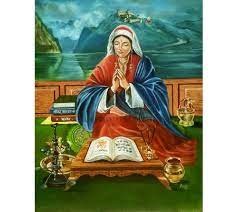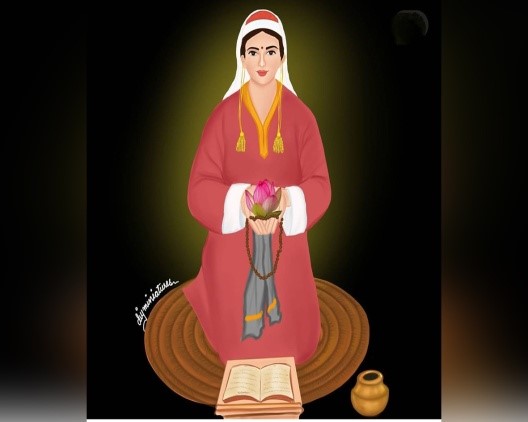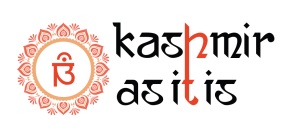NAME – Mata Rupa Bhawani (“Birth name Alakheshwari”)
Born – In the month of Zyeth (Jyesha), on the Poornima Tithi (full moon) a resident of Khankah-i-Shokta, Nawakadal (Srinagar, Kashmir) in the early 17th century (1621 -1721) AD.

Parents – She was the daughter of couple Pandit Madhav Joo Dhar, was an ardent devotee of Mata Sharika (Kali’s). He visited her temple daily at Hari Parvat to pray, pleased by Madhav Joo Dhar asked for a daughter Alakheshwari.
Childhood – Her spiritual ‘Guru’ was her father Pandit Madhav Joo Dhar who initiated her into the mysteries and practices of yoga, even after her marriage to Pandit Hiranand Sapru at an early age, she often visited Hari Parvat to perform her Sadhana at midnight. This raised questions about her, as a woman out on her own. Her mother-in-law and husband mistreated her. Ultimately, she left her in-law’s house in the pursuit of God. She had a great and deep experience of ups and downs of life. The worldly sufferings showed her the path of spiritual life.
Contributions -She was a 17th-century Hindu saint who lived in present-day Kashmir. She gave rich mystic poetry to Kashmiri language. In her poetry, we can find the influence of both Kashmir Shaivism and Islamic Sufism. Rupa Bhawani was a great preacher of yoga. She describes her yogic practice. The different stages of ‘yoga’ and awakening of Kundalini has been described in the simple language of common men. This great mystic poetess had experienced the truth and then explained the same. Such mystics had real experience and not a bookish one. That is the reason why this mystic poetry in every language is considered great after so many centuries.

Alakheshwari performed her Sadhana in solitude at Chashme Shahbi, Manigam, at Ganderbal district in J&K Laar and Vaskura. These places, including her birthplace at Safa Kadal, are now famous as Rupa Bhawani Asthapanas.
Mata Rupa Bhawan spoke extempore WAKHS (Sacred narrations) which were subsequently noted by her devotees on Burj (bhojpatra leaves) in manuscript form in Sharda Script. Some Wakhs are in an uncommon language which appears to be mix of Sharda, Sanskrit, Persian, Hindi and Punjabi. Only the learned and elated souls could attempt its translation and give the simple meaning.
Mata Rupa Bhawani died on maag gat’tu pachh satam in 1721 AD. This day became known as Sahib Saptami and is observed by Hindus in Kashmir. Devi Rupa Bhawani.
REFERENCES:
http://www.ikashmir.net/rupabhawani/index.html
https://en.wikipedia.org/wiki/Rupa_Bhawani
https://www.dailyexcelsior.com/mata-rupa-bhawani-the-mystic-saint/





